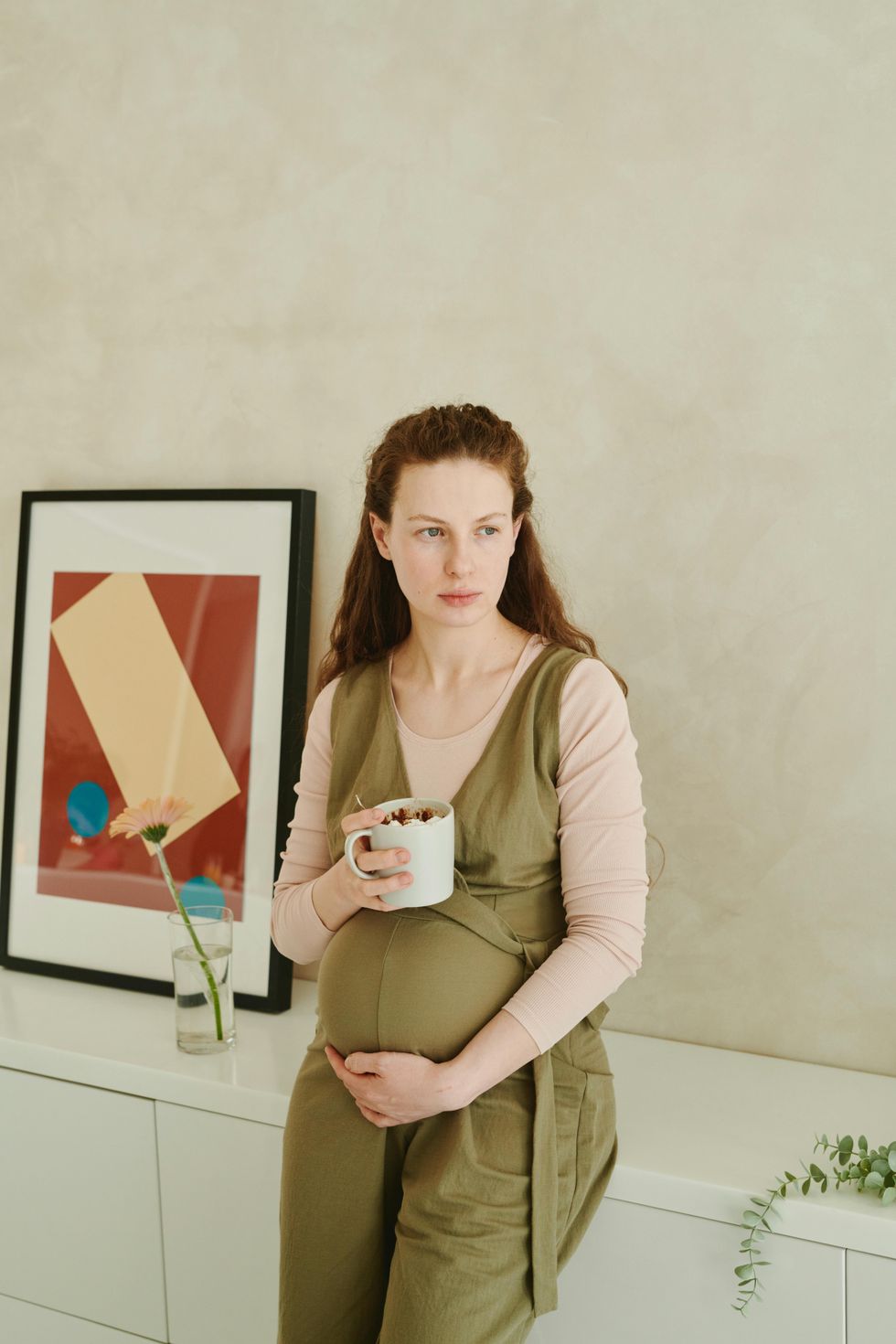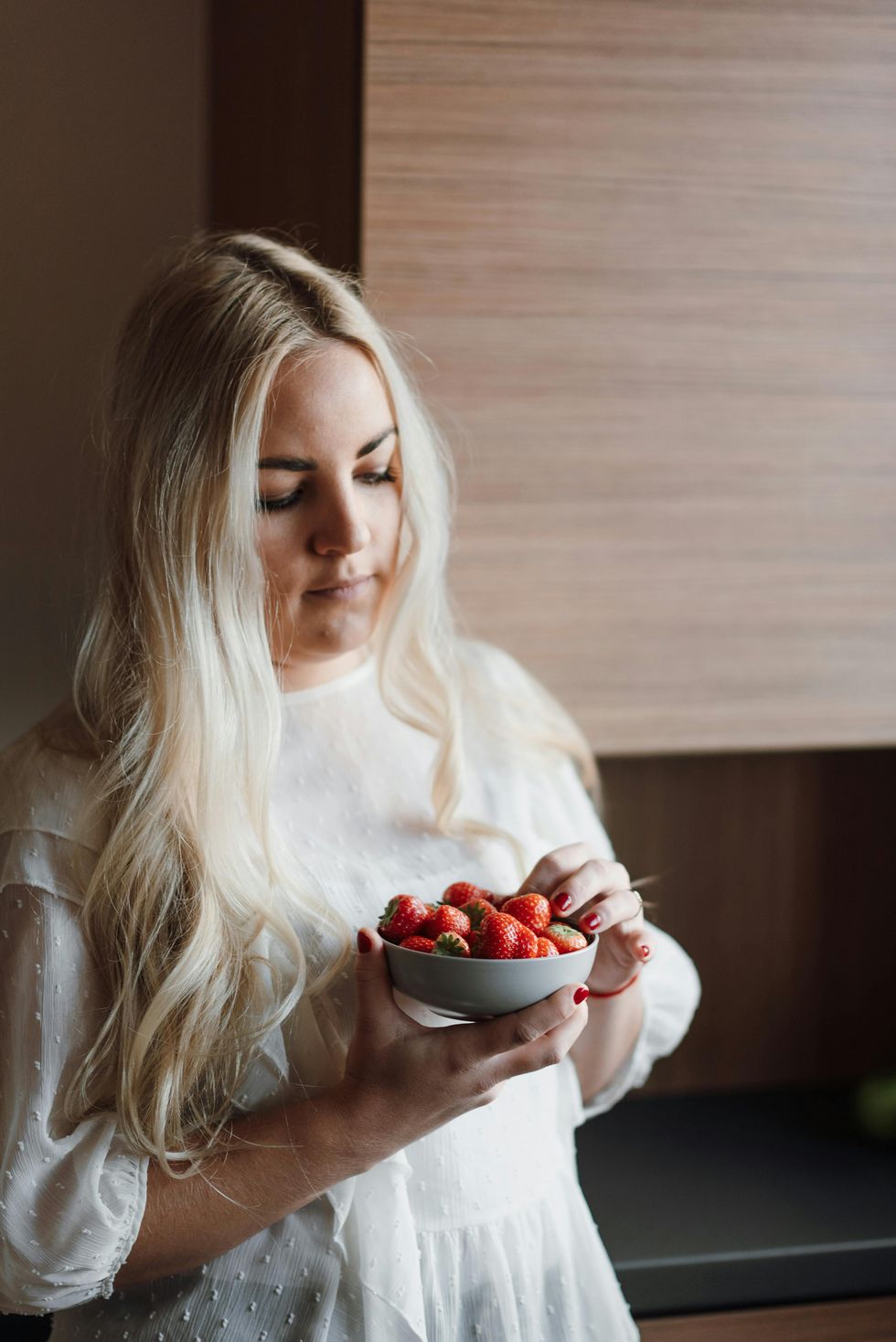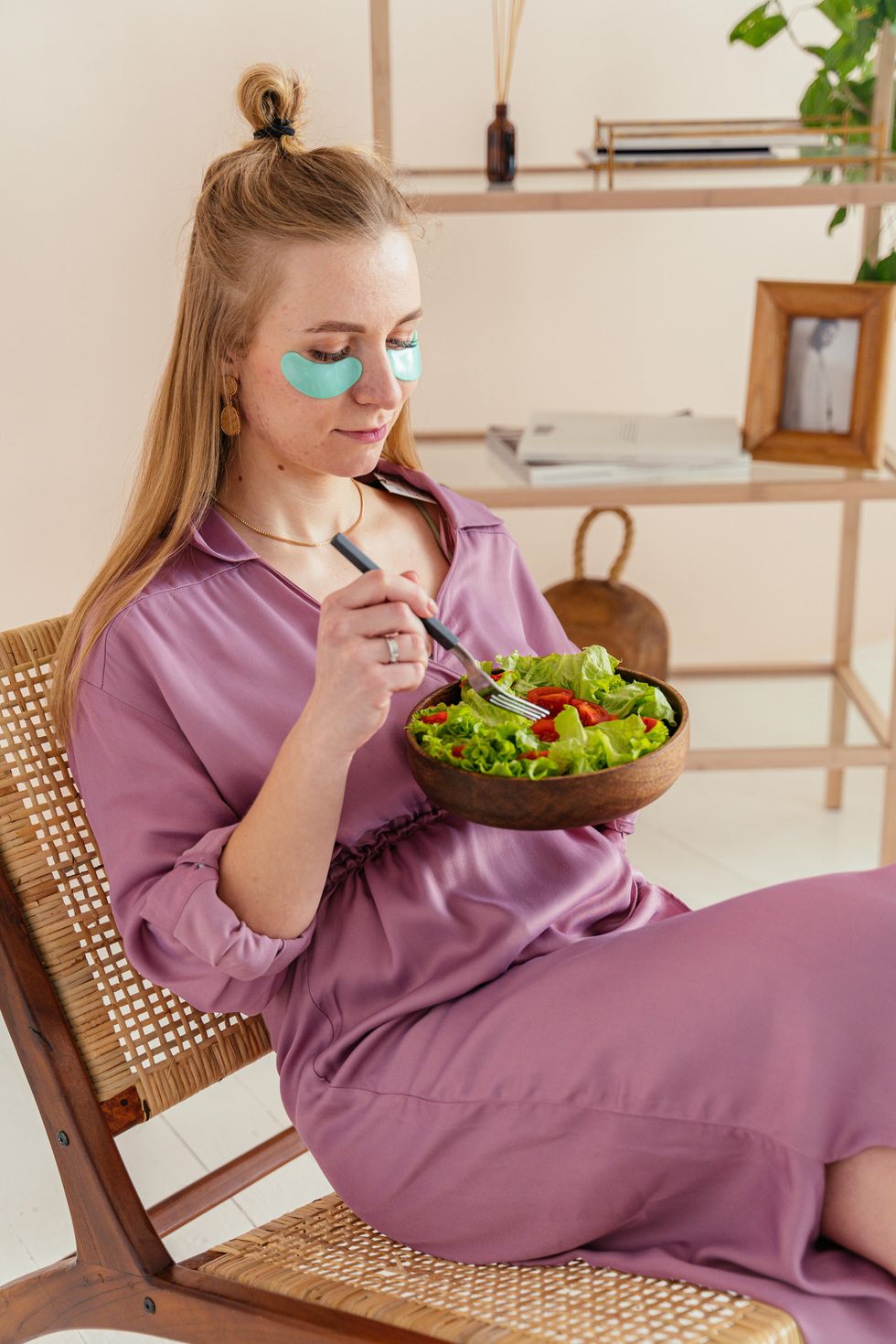These tips will help you have a healthy pregnancy!
Here Are All The Foods To Avoid When Pregnant, According To A Family Physician

Staff Writer, Jasmine Williams, covers a variety of topics from home decor to beauty and everything in between. She has bylines at Motherly, The Everymom, and Byrdie where she wrote about motherhood, beauty, health and relationships. Jasmine knew she wanted to be a writer when she realized she was actually interested in reading the articles in her mom's favorite magazines — and she may or may not have ripped her favorite articles out to study them later. When she's not working, you can find Jasmine playing make-believe with her toddler, spending an undisclosed amount of time in Target or TJ Maxx, and searching for a family-friendly puppy to add to her family.
Figuring out out which foods to avoid when pregnant can seem like an extreme sport for expecting moms. It's definitely not easy — I can't even begin to tell you how difficult it was trying to maintain a healthy diet while dealing with morning sickness. It was awful, but I was able to work with my OBGYN to find a diet the worked for me during pregnancy.
However, what worked for me isn't guaranteed to work for you because no two pregnancies or bodies are alike. But don't let that discourage you! I'm all about finding ways to help other moms navigate this chapter in their lives so I reached out to Dr. Karla Robinson, MD, a board-certified family physician and medical editor GoodRx. She has almost 20 years of experience and plenty of helpful tips that'll help you learn what foods to avoid when pregnant!
How does the food moms eat during pregnancy affect their baby?

Image via Matilda Wormwood/Pexels
This is one of those valid questions that every pregnant mom will ask at least once during her pregnancy. Even if you maintained a healthy diet prior to conceiving, you could still wonder how your food is affecting your unborn child.
Dr. Robinson says, “During pregnancy, both the mother and her fetus require extra nutrients and vitamins. As the fetus develops, these nutrients, especially folic acid, support overall growth and healthy development.”
Knowing how your child can benefit from foods you eat is one thing, but it’s also important to know what can happen if you’re not being mindful of what you consume. Conversely, consuming foods that are harmful to a developing fetus can lead to infections, a low birth weight and birth defects. So, maintaining a healthy diet is crucial to a healthy pregnancy,” she reiterates.
What does a mom's body need during pregnancy (i.e., nutrients and vitamins)?

Image via Amina Filkins/Pexels
Like Dr. Robinson mentioned above, a healthy dose of nutrients and vitamins — like calcium, vitamin D, iron, and omega-3 fatty acids — are needed during pregnancy. There’s a chance that you and your unborn baby will get everything that’s needed, so she recommends taking prenatal vitamins.
“...taking prenatal vitamins ensures your body is getting enough of these key nutrients to support your baby’s development. One of the most important prenatal vitamins is folic acid. Folic acid is a synthetic form of folate and is highly recommended during pregnancy to help prevent certain birth defects, like neural tube defects,” Dr. Robinson explains.
Which foods should you avoid while pregnant?

Image via Rachel Claire/Pexels
Although there are varying levels of ‘advice’ on social media about nutrition during pregnancy, you should err on the side of caution because everyone isn’t a certified nutritionist or licensed doctor. I made sure to ask my OBGYN this question at the beginning of my pregnancy because I didn’t want to be led in the wrong direction.
If you’re currently pregnant or thinking about conceiving, Dr. Robinson says there are several things you should avoid ingesting. “Pregnant women should be cautious of eating fish with high mercury levels, like swordfish. Too much mercury can disrupt fetal brain development,” she stresses.
This doesn’t mean you should avoid all seafood — shrimp and salmon have low mercury content — but it does mean you should research what contains mercury levels that are dangerous for your baby.
There’s also the case of listeria infections that pregnant women are prone to developing. Dr. Robinson says that it can “...cross the placenta and be dangerous to the baby’s health.” It sounds scary, but there are ways you can avoid it! You may love these things, but stay away from deli meats, sprouts, feta, or brie cheese during your pregnancy.

Image via Vlada Karpovich/Pexels
Next up? Nix the caffeine habit for the next nine months. Your day may not get started until you have a nice cup of coffee, but your baby doesn’t need it while you’re pregnant. Anything more than “200mg of caffeine a day…can lead to low birth of the fetus and impact brain development,” adds Dr. Robinson.
Lastly, put the wine, beer, and cocktails down. It doesn’t matter if your favorite influencer mentioned she sipped a little red wine and didn’t have complications. Your body and your pregnancy isn’t guaranteed to be a carbon of hers. It’s why Dr. Robinson says, “Drinking alcohol is also dangerous during pregnancy because it can have a negative impact on development and the viability of a pregnancy— potentially leading to a stillbirth, miscarriage and a higher likelihood of a preterm birth.”
In other words, alcohol can cause long term problems in your child that’s categorized as fetal alcohol spectrum disorder. It’s just not worth the risk. Instead, whip up a cute little mocktail and call it a day!
Which foods are beneficial to eat during pregnancy?

Image via Anete Lusina/Pexels
If you’re thinking you can’t enjoy any yummy food during your pregnancy, that’s totally false! Once I learned what was safe to eat — and didn’t trigger morning sickness — I enjoyed plenty of meals. So, what should you be enjoying?
“Incorporating foods high in iron, like steak and broccoli, will help with anemia, which many women experience during pregnancy. Eating foods like fresh fruits, veggies, whole grains, beans, and avocado, are also beneficial during pregnancy because they’re high in folic acid,” advises Dr. Robinson.
She also says, “Upping your calcium intake through dairy and leafy green vegetables can also help support healthy bone development.”

Image via Antoni Shkraba/Pexels
Although I didn’t have gestational diabetes, my iron levels were low so I was instructed to include more dairy, green veggies, and beef in my diet. This happened after an incident where I...almost passed out while getting my car’s oil changed. Let’s just say I scared one of the mechanics so bad that he offered to call the ambulance. As a result, I started being intentional about eating foods that contained all the nutrients and vitamins that were needed to support a healthy pregnancy.
Learning about foods to avoid when pregnant isn’t meant to scare or restrict you. It’s more or less about helping you as well as your baby thrive during the nine months you’re spent physically connected to each other. So enjoy eating for two — just keep all this in mind while you do!
If you need tips about breastfeeding or navigating postpartum, we’ve got even more helpful tips to share!
Lead image via Amina Filkins/Pexels



















